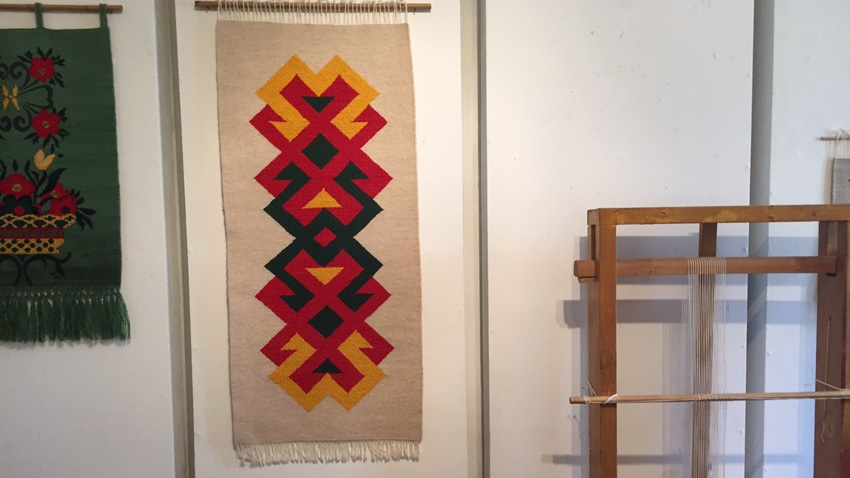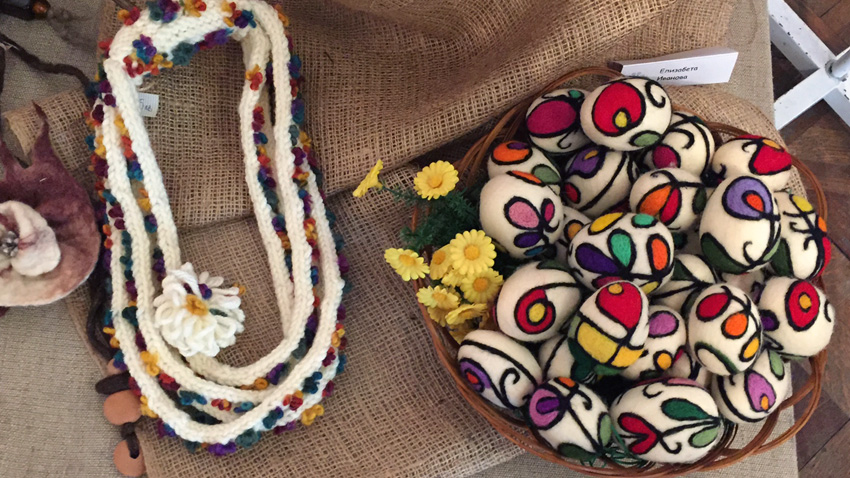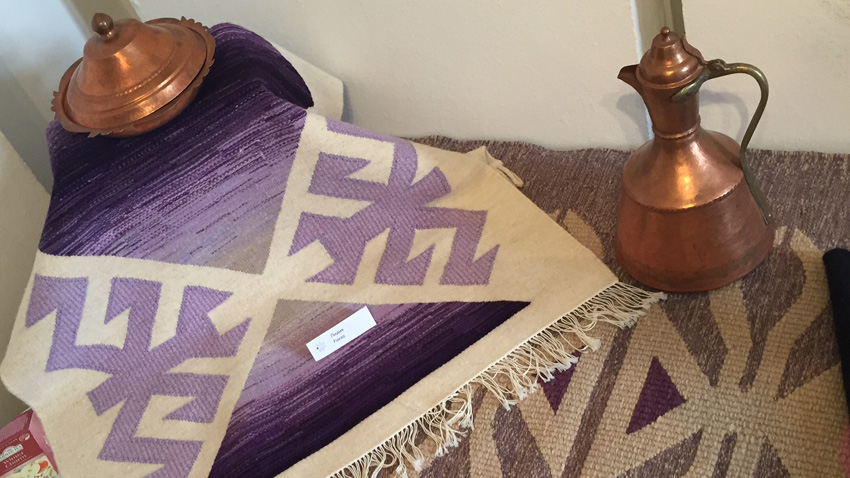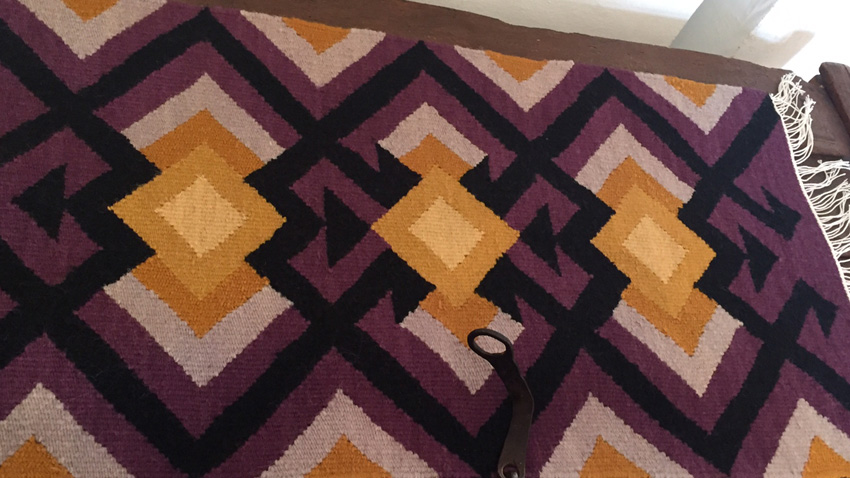Bracelets made of wrought iron, embroidered shirts, colourful aprons, beautiful braiding… The magic of colours brings a smile to the faces of anyone entering the National Ethnographic Museum. Until 20 April the premises will be an arts and handicrafts workshop bringing together master craftsmen from Sofia. Visitors will be able to watch different demonstrations -how to make embroidery, braiding, lace, jewellery, copper utensils, how to use a vertical loom - they will see the exquisite objects made and decide whether they want to buy any of them.

Several generations of master craftsmen are taking part in the exhibition and the various workshops. They are all highly skilled, but also smooth-tongued and ever willing to tell visitors more and more stories of handicrafts and tradition. What are the secrets of weaving - here is the answer from Lydia Raeva, member of the Society of Master Craftsmen of Traditional Handicrafts in Sofia:
“I come from a family of applied artists. My father and my weaving tutor are among the founders of our society. I myself use a vertical loom. I have been weaving for 33 years and still love it. It takes patience, time and love. As to the technique, the vertical loom resembles the horizontal loom, but the vertical version is thought to be less artistic. Weaving using a vertical loom takes just one hand but all sorts of figures can be made. In Bulgaria there are two principal trends - the Chiprovtsi and the Kotel school of carpet making. I myself am of the Chiprovtsi school. I use hand-drawn patterns. Last year UNESCO put the Chiprovtsi carpets on its List of Intangible Cultural Heritage and that boosted foreigners' interest in Bulgarian handicrafts.”

Lydia has taken part in numerous exhibitions and festivals and has tutored several apprentices. She says she is glad to see interest in handicrafts revive in recent years - especially in weaving Chiprovtsi carpets.
People who come to the National Ethnographic Museum are full of questions - about the symbols, the colours, the way different objects are made and usually choose to buy something. For master craftsmen this is a rare opportunity to demonstrate their skills and the fruits of their labour. Unfortunately, craftsmen in Sofia do not have any facility or premises where they can display their wares. And that deprives them of a steady income, but it also deprives tourists of an opportunity to buy authentic, hand-crafted traditional works. Is it possible for someone practicing this form of art to earn a living?

“Actually, it is rather difficult to make enough money to live on", Lydia Raeva explains. "That is the reason why some of the craftsmen hold another job as well. The truth is that to devote yourself entirely to any craft, you must be able to afford to do so. You must have a studio, take part in different events but the participation fees are significant. But if the will is there, if you are a skilled craftsman then you could make money as well. It seems to me that in Bulgaria manual work is underrated and underpaid. Nonetheless, I think that we have sufficient contacts with the world, with people who appreciate our work. They come, they see our work, we learn from one another.”
Perhaps Lydia is right and we should start appreciating manual labour and the artistic skill of Bulgaria's craftsmen as a national treasure instead of taking it for granted.

English version: Milena Daynova
Photos: Yoan KolevBulgaria's Consul General in New York Angel Angelov has taken part in an online discussion organized by an educational platform on Holocaust issues and dedicated to the saving of Bulgarian Jews in the Second World War, BTA reports. A special guest..
An exhibition titled "PICASSO: Graphics from the National Gallery Collection " will open at 18:00 pm this evening at Kvadrat 500 in Sofia. The National Gallery's collection includes twenty-one graphic works by Picasso, thematically connected to his..
Turning a new page, 2025 comes with hope and faith in better days, in peace that will prevail, in happiness and love. On the first day of January - Golyam Sechko, as it is known in the Bulgarian tradition - the mood is upbeat and smiles are everywhere...

+359 2 9336 661
